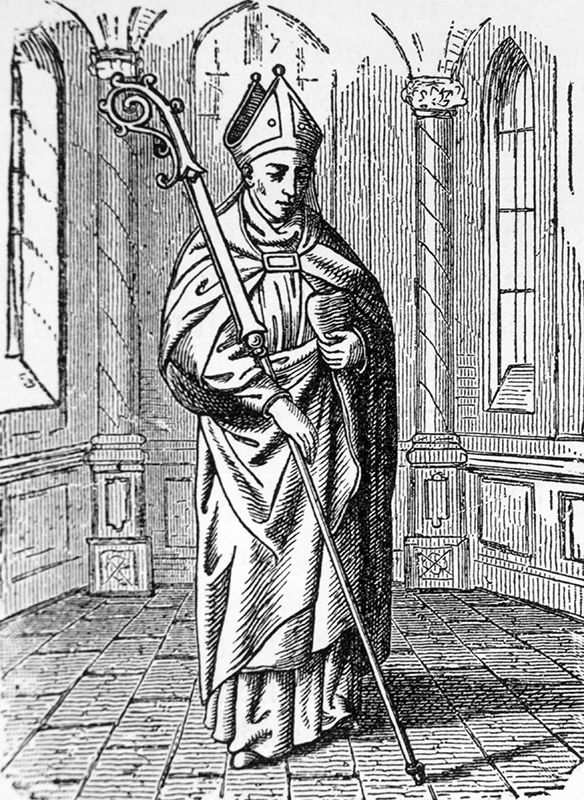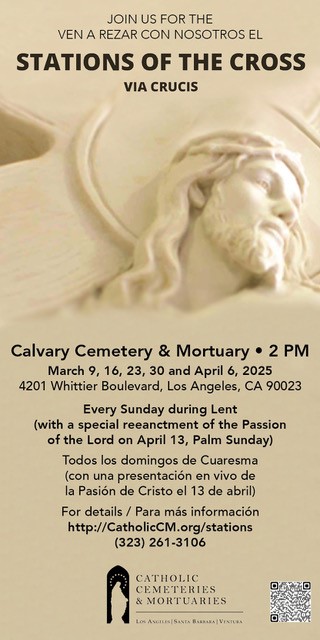How did the earliest Christians view the practice of capital punishment?
To borrow a phrase from social media: It’s complicated.
The issue arises in just a handful of documents from the first three centuries, and those few instances are sometimes vague, ambivalent or wavering. They resist the most ardent modern efforts to find consistency.
In the first century, Clement of Rome lamented the unjust execution of biblical heroes at the hands of wicked rulers (1 Clement 45). “The righteous were indeed persecuted, but only by the wicked. They were cast into prison, but only by the unholy; they were stoned, but only by transgressors; they were slain, but only by the accursed.” He spoke of specific instances of people wrongly accused and killed. But he did not say, or even imply, that the death penalty could never be administered justly, or that only the unjust would execute a death sentence.
Around A.D. 150, St. Justin Martyr said that Christians of his time “refrain from making war upon our enemies” and would rather die than take a life in self-defense (“First Apology,” 1.39). Justin was, of course, living in a time of persecution, when Christians had neither the means nor the authority to wage war or sentence anyone to death. It is difficult to say whether he intended to claim absolute pacifism as a perennial norm for Christians. If he did, he would have placed himself outside the mainstream of Christian thought.
Perhaps the strongest and clearest early-Christian statement against the death penalty comes from Athenagoras of Athens (around A.D. 177). Responding to those who accused Christians of ritual murder, he said: “We cannot endure even to see a man put to death, though justly. … How, then, when we do not even look on, … can we put a man to death?” (“A Plea for the Christians,” 35).
Again, however, the statement is not as binding as it might seem. He was defending the Church against the specific charge that its liturgies included child-murder. His intention was to establish that Christians were peace-loving people. He was not laying down universal moral principles.
Indeed, in the next generation, Clement of Alexandria, took quite the opposite position: “When one falls into any incurable evil,” Clement said, “… it will be for his good if he is put to death” (Stromata 1.27). And Clement was, in fact, laying down moral principles.
Yet Clement’s position was not universal. His contemporary Tertullian, a North African, decisively opposed the practice of capital punishment, claiming that the Creator “puts his interdict on every sort of man-killing” (“On the Shows,” 2). Tertullian was (like Justin) a pacifist who believed that Christians should not serve in the military. In this, he found company with Hippolytus, a Roman priest who urged pastors to deny baptism to any soldier whatsoever. “A military man in authority must not execute men. If he is ordered, he must not carry it out” (“Apostolic Tradition,” 16.9).
Yet we know, from the graves in the Roman Catacombs, that the early Christians were amply represented in all the branches of the military. Pacifism may have been the ideal of men like Tertullian and Hippolytus. But in the time of Marcus Aurelius, there was an entirely Christian unit in the Roman army.
As the third century turned over to the fourth, Lactantius, a prominent Christian intellectual, opposed capital punishment, as it was the cause of death for many of his co-religionists during the Diocletian persecution. And Lactantius held this position as long as Christians were vulnerable. Yet, later — once Constantine, a Christian, had taken the imperial throne — the same Lactantius spoke in favor of the emperor’s right to impose the death penalty.
The early Christians’ treatment of capital punishment differed essentially from their condemnation of certain other forms of killing — abortion and infanticide, for example, and the blood sport of the gladiatorial games. In each of those cases, the judgment was consistently straightforward, unhesitating and unequivocal.
But when modern scholars survey the first Christians’ positions on the death penalty, they come to vastly different conclusions.
Cardinal Avery Dulles said: “The early Christians evidently had nothing against the death penalty … [T]he Fathers and Doctors of the Church are virtually unanimous in their support for capital punishment.”
Meanwhile, the British ethicist Calum Miller looked at the same data and concluded: “The tradition of the early Church … was unanimously against killing, a tradition so strong that I hold it to be of comparable strength with almost any Christian doctrine.”
Well, which is it? Are the Fathers “virtually unanimous in their support for capital punishment” or “unanimously against” it?
The legal scholar Davison M. Douglas summarizes the matter with precision: “A few early Christian writers … argued that killing was contrary to Christian ethics and that Christians must play no role in executions, although they conceded that the state did have the right to impose the death penalty.”
The great Fathers of the fourth and fifth centuries — Ambrose, Chrysostom, Augustine — recognized the right of the state to execute criminals, but urged rulers not to exercise that right. St. Ambrose told a Christian judge named Studius: “You will be excused if you do it, but you will be admired if you refrain when you might have done it” (“Letter,” 50).
Ambrose’s disciple, St. Augustine, characterized the good Christian ruler as “slow to punish, but ready to pardon” (“City of God,” 5.24). He justified capital punishment when there was “no other established method of restraining the hostility of the desperate.” Then, he said, “perhaps extreme necessity would demand the killing of such people” (“Letter,” 134).
Augustine recognized the state’s right to wield the sword, but he hoped that lethal use would be extremely rare. “As violence is used toward him who rebels and resists, so mercy is due to the vanquished or the captive, especially in the case in which future troubling of the peace is not to be feared” (“Letter,” 189).
The later Fathers synthesized the various testimonies of their predecessors and concluded that mercy should predominate among Christian peoples, and life should be spared in all but the rarest cases. In this they speak with the same voice as the Catechism of the Catholic Church, St. John Paul II (Evangelium Vitae, 56) and indeed all the recent popes, the bishops of the United States and all the bishops’ conferences that have issued statements on the subject.
In this matter as in most matters, we see consistency between the earliest Fathers and our current leaders and teachers — and greater clarity with the passage of time.
Interested in more? Subscribe to Angelus News to get daily articles sent to your inbox.

